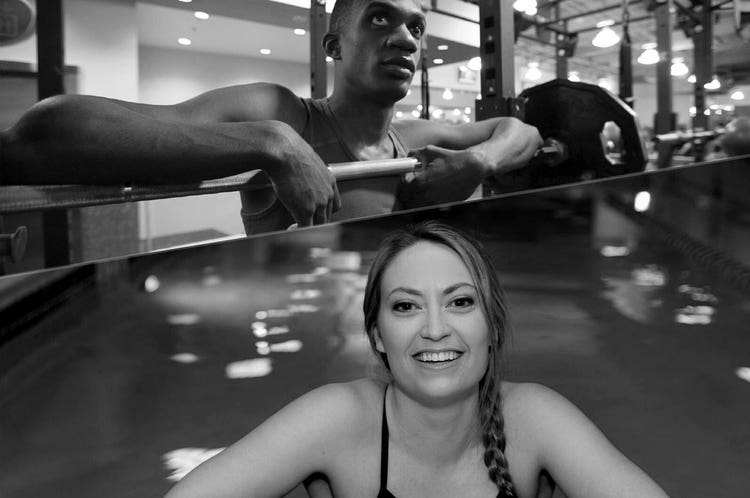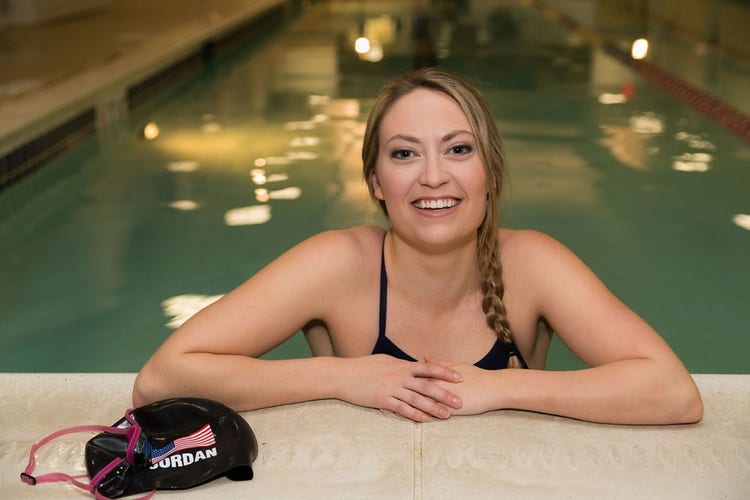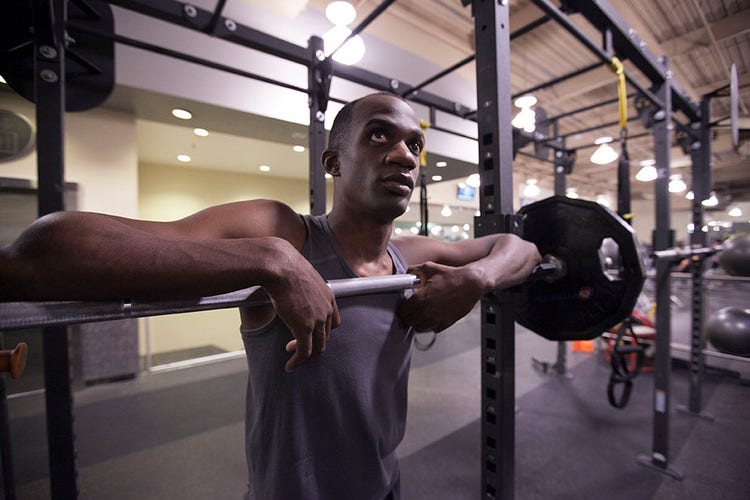99% Perspiration, 100% Inspiration

Thomas Edison said genius was a little inspiration and a lot of perspiration. That puts Team 24 and U.S. Paralympic athletes Cortney Jordan and Lex Gillette entirely off the charts. 24Life recently talked to these two impressively accomplished athletes to get their takes on family, teamwork, balance and their unwavering commitment to setting the bar higher.
Meet swimmer Cortney Jordan

Jordan, who has cerebral palsy and suffers from a partially paralyzed left side, is a two-time U.S. Paralympic swimmer with medals from both the 2008 and 2012 Paralympic Games. She’s won eight Paralympic medals in her classification, including one gold medal (50 meter freestyle), five silver medals (50m freestyle, 100m freestyle — twice, 400m freestyle — twice) and two bronze medals (100m backstroke, 200m individual medley).
Meet long-jumper Lex Gillette

On how they got started in their sports …
For Jordan, swimming is in her blood. Her grandfather was one of the founders of the Swimming Hall of Fame in Florida, and her father was a national competitive swimmer.
“My sister was a state-champion swimmer too, so I really didn’t have a chance,” adds Jordan wryly.
Gillette was introduced to track and field by his high school teacher, Brian Whitmer, after Whitmer noticed he was a great runner and jumper.
“Naturally I gravitated towards the jumping events, because that’s what I felt most comfortable doing. We continued to practice, and as my results grew stronger, I started to love it,” says Gillette.
On the support of family …
Jordan came from a swimming family and was surrounded by active swimmers growing up. Surrounding herself with like-minded individuals became integral to her success.
“When I was younger I wanted to be just like my sister, which is the main reason I got into swimming. She was so cool, and I wanted to be just like her,” says Jordan.
Jordan’s mother, a former court reporter, gave up her career to keep up with the many doctor and physical therapy visits that go hand-in-hand with Jordan’s diagnosis. Her dad was a colonel in the Air Force.
“My mom was there for every doctor’s appointment and every swim meet. My mom is probably the most selfless person you will ever meet,” Jordan says. “My dad even gave up his dream job so I could be closer to a hospital for physical therapy.”
After being informed by doctors that he would be losing his sight, Gillette turned to his mother for strength.
“My mom is a strong person, and she told me I would still do a lot of amazing things despite my lack of sight. From that point on she became focused on helping me learn everything I needed to be successful on my own,” says Gillette.
“I get my motivation and energy from her. She always expected nothing but the best from me. In turn I am locked in, trying to be the best I can be,” he says.
On training as a team…
For Jordan, her swim team is like her family and she looks to them as a source of inspiration and motivation on the especially hard days.
“On days when I’m tired, I count on my teammates to remind me why I’m here. I also like to think about how it felt winning a gold medal and hearing the National Anthem play — that can get me through anything,” Jordan says.
As any elite athlete experiences, self-doubt did hit Jordan as a young swimmer, and she was discouraged from continuing because she couldn’t compare to other able-bodied athletes.
For Gillette, his coach encouraged him to see the big picture of all that he could accomplish and what opportunities were available to him. Gillette realized he had a chance to go to the Paralympic Games to win medals, break records, compete at the most difficult level and succeed.
He developed a system in which Coach Whitmer would stand at take-off and use one sound to signal to Gillette to run and another sound to jump. Gillette would need to remember how many strides are required and be sure to run as straight as possible.
“Coach Whitmer is a big part of my life, not only as a coach but as a friend. To this day, I share all my successes with him and remind him that he is the person that created this foundation,” Gillette says. “He always talked about trust, communication and problem solving, not just during a competition but outside, too.”
On finding balance …
Besides the obvious outward signs of physical transformation through intensely hard work and mental grit, these Paralympic athletes have achieved a degree of perspective on their abilities that we find inspiring. When it comes to balance, Jordan has this to say: “The Dalai Lama once said, ‘Man sacrifices his health in order to make money. Then he sacrifices money to recuperate his health.’ I think it’s about finding a balance and taking care of yourself each day.”
To learn more about Jordan, Gillette and the rest of Team 24, check out Vol. 2, Issue 2 of 24Life.